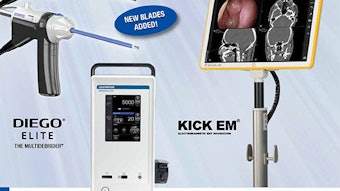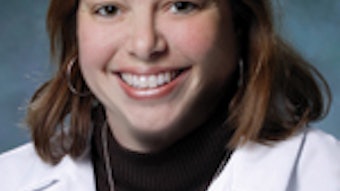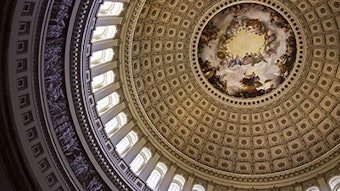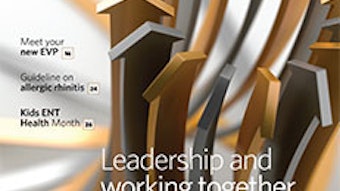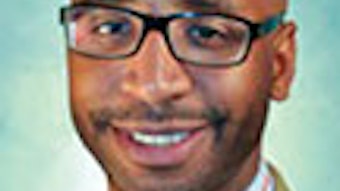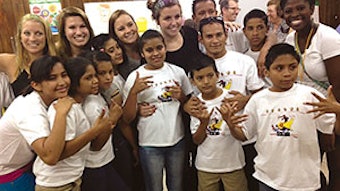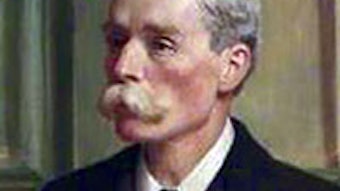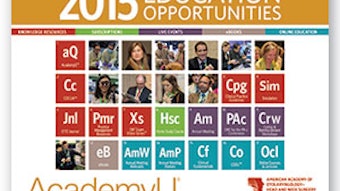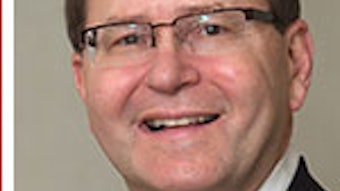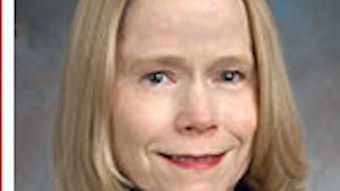Meet your new EVP
This year began with a new executive vice president/CEO at the American Academy of Otolaryngology—Head and Neck Surgery and its Foundation. James C. Denneny III, MD, has assumed the leadership role after years of experience in both academic and private practice.
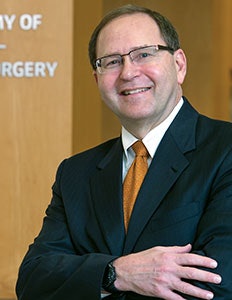 James C. Denneny III, MD
James C. Denneny III, MDJames C. Denneny III, MD, on his first action items, the Academy’s greatest challenges and strengths, and why he became an otolaryngologist
This year began with a new executive vice president/CEO at the American Academy of Otolaryngology—Head and Neck Surgery and its Foundation. James C. Denneny III, MD, has assumed the leadership role after years of experience in both academic and private practice.
An active member of the Academy since 1984, Dr. Denneny served as president of the AAO-HNS/F (2007-2008). He has held a series of leadership positions including 11 years on the Boards of Directors, 22 on the Board of Governors with a term as BOG chairman (1998-1999) as well as positions on numerous committees, coalitions, and workgroups.
Before serving in the Knoxville, TN, community for 24 years as a private practitioner, he held academic appointments in Houston and Indianapolis. In 2011, he joined the Department of Otolaryngology—Head and Neck Surgery at the University of Missouri as professor of clinical otolaryngology. Dr. Denneny shares his thoughts as he begins his new role.
Why were you interested in becoming the executive vice president/CEO of the AAO-HNS/F?
I have been involved in the Academy for more than 20 years. I am excited to help lead otolaryngology through the ongoing transition in the healthcare delivery system. As we develop the tools for our Members to actively participate in the evolving paradigm shift in the way medicine is practiced, it will be essential that we produce the implements necessary for them to improve upon and report patient outcomes. This will become essential for our Members to be able to continue to practice the quality of medicine they are accustomed to.
What do you most want Academy Members to know about you?
I want to assure our Members that I have the energy, innovation, passion, and skills to continue to move forward the mission of the Academy to provide our Members with the tools necessary to deliver the best patient care. Times of change, like we are experiencing now, give us the opportunity to adapt and improve things that we have been doing well for some time. I am committed to continuing our core services of education, research, and advocacy to produce the products and services our Members need as their practice environment changes.
What are you most looking forward to in your new role?
I am looking forward to being able to commit my full-time efforts to working with all of otolaryngology to best position the specialty for continued success in the future. I am looking forward also to working with my many friends and colleagues within the broad spectrum of otolaryngology to accomplish this as a team. I have never had the opportunity to work with such a dedicated and skilled staff such as the one I have inherited in my new job. The collaboration between the staff and the component Members represented by the diverse field of otolaryngology will be essential to all of our success.
What are the first actions you will take as executive vice president/CEO?
I have attended several meetings with David R. Nielsen, MD, including the ASAE (American Society of Association Executives), the AMA interim meeting, and the CMSS (Council of Medical Specialty Societies), met with the staff of the Academy, and planned our inaugural otolaryngology specialty summit to coincide with the Academy’s strategic planning meeting. Robert H. Miller, MD, and I have met and will continue to meet to explore ways the American Board of Otolaryngology and the Academy can work together for our Members’ and patients’ benefit.
What do you see as some of the biggest challenges?
The changes in the healthcare delivery system create a great challenge for the Academy. We are trying to provide our Members with the tools they need to provide the best patient care as well as maintain viable practice settings. We are trying to produce educational and quality materials based on a system that has not yet been defined. The political climate has changed following the last election and will affect our advocacy positions, too. Specifically, it will make repeal of the Sustainable Growth Rate payment formula more difficult.
What are the greatest strengths of the Academy and the Foundation?
The Academy’s greatest strength lies in the extraordinary support it gets from its dedicated and loyal membership and staff. The efforts these groups give on behalf of our specialty and patients enable our education, research, and advocacy efforts. The breadth and depth of their skill and knowledge directly relate to the Academy’s ability to be a leader in these areas. The scientific innovation within the field of otolaryngology itself over our broad range of specialty groups gives great strength to our efforts as well.
What are your hopes for the March Otolaryngology Summit?
This is an important gathering for leaders from our specialty areas as well as the American Board of Otolaryngology and The Triological Society. I would hope that frank discussions can be conducted that would allow us to ascertain areas where we can work well together and synergize our resources and goals. It is important that a small specialty such as otolaryngology work together whenever possible to maximize our effectiveness in education, research, advocacy, and Member services. I would hope this type of meeting would become a regular event for our specialty leaders in the future. Establishing a good working dialogue would be an essential step for these opportunities to come to fruition.
Who has influenced you as a leader?
I have had the opportunity to observe and work with a number of great leaders and observe different styles that they used. I have incorporated valuable insights from many including Harold C. Pillsbury III, MD; C. Ron Cannon, MD; Jonas T. Johnson, MD; KJ Lee, MD; and Dr. Nielsen. However, the person who started me out in Academy activities and most influenced my leadership style was M. Eugene Tardy, MD. In addition to being a premier facial plastic surgeon, Dr. Tardy was also a unifying leader in the specialty.
Why did you become an otolaryngologist?
When I was growing up as a child I had extensive problems with my tonsils, allergies, and sinuses. My experiences related to diagnosis and treatment of these problems led me to medicine in general. When I was in high school, my friendship with Willard B. Moran, MD, helped me to finalize my decision to go into otolaryngology as a specialty. Interestingly enough, in my first job at The University of Texas-Houston, I took over the office of Herbert H. Harris, MD, who had taken my tonsils out 20 years earlier.
What would members be most surprised to learn about you?
I like operating heavy equipment and driving classic “muscle” cars.
What do you like to do when you aren’t working?
I like being outdoors in almost any activity. I enjoy working on my family farm that has been in the family since 1819. I also enjoy hunting, fishing, and watching baseball. Some of my most memorable times have been on family trips both within the United States and abroad. I try to exercise on a nightly basis, which is relaxing for me.
